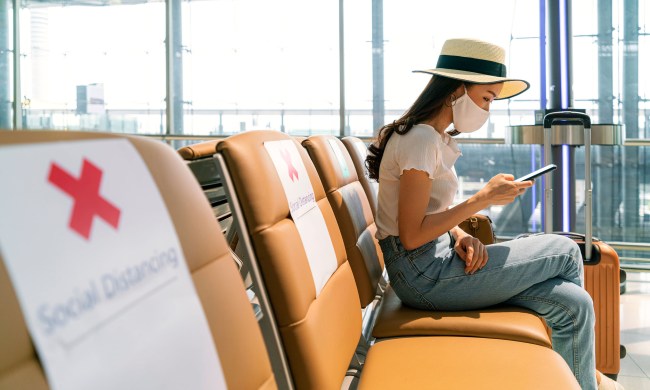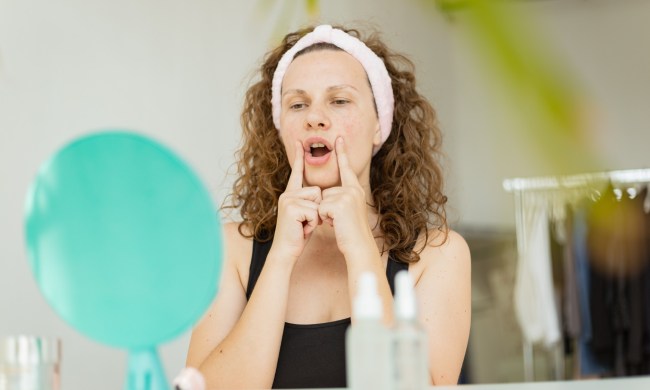When the world fell apart in the spring of 2020, so did everybody’s exercise and wellness routines. Some of us adapted. Some adopted a solid practice with Yoga With Adriene videos on YouTube. Maybe 6 a.m. runs were already a part of a reliable schedule. But, for the rest of the world, the abnormalcy of life in lockdown threw us over the edge. We indulged too much in booze, and the stress of just getting by seemed too much.
A year later, we’re heading toward a post-COVID world, though we’re certainly not there yet. This means that it’s time to refocus on our health – physical, mental, and spiritual. Exercise will undoubtedly be on the list. So, should meditation or yoga. Perhaps, most importantly, though, a lot of us need to break free from the lockdown we’ve endured and head to the mountain, trail, or race. But, it’s essential to do so safely.
So how do we regain fitness, mental wellness and find our head to our next race post-COVID?
Reshaping Our Health and Looking at our Bodies Holistically
In college, they call it the Freshman 15, but nobody coined a term for the weight gained during COVID. While it’s undoubtedly somewhat important to pay attention to the numbers on the scale, it’s more important that we are holistically healthy. That means we need to get moving, but we also need to head to the doctor if we didn’t do so in 2020. Maybe skipping out on the doctor made sense last year. It’s crucial to get a checkup in 2021.
In a study published in Frontiers in Psychology, Physical Fitness and Exercise During the COVID-19 Pandemic: A Qualitative Enquiry, the authors noted the importance of maintaining physical and psychological health, which helps our bodies deal with the negative consequences of disease. Physical fitness is also crucial to fighting off the effects of COVID-19.
But, with gyms shut down and the majority of us holed up in our homes, fitness changed. Some with positive perceptions shifted their routines and focused on working out at home. Some turned to yoga or used equipment at home if they had it. The study found that there were reasons for lack of motivation. However, one of those was a lack of a gym partner. Social connection is an integral part of working out.
Finding the time to work out can have a significant impact on our physical and mental health.
“Time and again, science has confirmed the importance of engaging in regular physical activity at all times of life, not only due to its impact on the level of physical health but also on mental health,” said Dr. Velonda Anderson. “In moments of great psychological and emotional fragility such as our current COVID living, regular physical activity gains even more importance.”
Reshaping Our Minds
Dr. Marsha Brown, a mental-health Psychologist who focuses on mental health, stress management, and self-care, said the key to mental health now and post-COVID is to focus on self-care. Brown said people couldn’t take care of other people or deal with things if they aren’t taking care of themselves first.
This can be particularly true for folks in demanding jobs, such as doctors or nurses. The pandemic put a lot of stress on everybody, and it’s essential to step back and evaluate our own needs.
“Overall, no matter what a person’s occupation, if it’s high stress or high stakes or not, the biggest issue, and has always been self-care,” Brown said. “Mental wellness should be at the forefront of our minds, pandemic or not.”
She noticed that one good thing that came out of the COVID-19 pandemic is that people could slow down. It also made folks assess their busyness and the value of the activities in their life.
“ I think that one good thing that came out of COVID was the opportunity to just slow down and not be so busy all the time,” she said. “I’ve spoken to so many people who were busy, who thought they were fine. When all of that was forcibly taken away because of the pandemic, they looked around and thought, ‘I don’t like this [the constant busyness] actually.’”
Brown elaborated that many folks in scenarios where they were constantly going were also neglecting their mental health. They didn’t like neglecting their mental health for their career or taking care of others.
As the world opens back up, it’s essential to examine if it’s worthwhile to return to that level of busyness. Take note of whether an obligation is done because there’s a disappointment factor, and if there is, you can reassess whether you want to do it. Brown noted it’s essential to think about if something is only one or two hours, the time it takes to get ready, and travel should also be included and the time it takes to decompress from the event.
Mental wellness also refers to emotional and social well-being, according to Brown. Physical and mental health don’t occur in a vacuum. They go hand-in-hand. Getting help doesn’t mean something is wrong, but declining mental health can lead to mental illness, so make sure it’s something on the to-do list as we head back out into the world.
“Every human has a vested interest in taking care of mental health,” Brown said.
Running Against The Wind
In Cincinnati, Ohio, runners are on the move again. Ultramarathoner Harvey Lewis has been on the move via his Instagram account. At Fleet Feet Cincinnati, a running store that organizes training runs and races, they have been actively training for the local marathon, The Flying Pig, which is taking place later this year. In the meantime, they are doing a virtual event where runners can run the “pig” on their own time.
“Fleet Feet Cincinnati has been training in a group setting successfully since this January,” said Jen Loving, Training Program Director for Fleet Feet Cincinnati. “We do have COVID procedures in place to limit exposure and keep everyone safe. (You can read the COVID policy here.) As we wait for guidance from the CDC, ODH, and the Governor, we hope to relax or eliminate the need for some or all of the COVID policies. Bottom line, even with these policies in place, we have been able to hold runs and train for the virtual Pig events.”
For those not ready for a half-or full-marathon, or if you’re getting back into shape, Loving said to start slow. If you used to run six miles, maybe start at three. She added that it’s essential to be kind and take it easy on yourself. But, the most important thing is to begin.
“Put running shoes on, choose a start time, add it to your phone as a reminder, and once you get your notification to stop what you are doing and take a walk, run, or ride,” Loving said. “Now that the weather is warming, put one foot outside the door…the other foot is sure to follow.”
So what if you’re looking to travel for a race? The important thing is to communicate with the race directors to know what to expect when you travel. Many races have cut out or reduced spectators. Some are even requesting proof of COVID vaccination.
“The race directors want nothing more than to be able to put on a live, in-person race safely, so any directions they are communicating need to be followed if you want to race in that particular race,” Loving said. “If runners have any doubt or questions about what is required of them for race day, they should contact the RD as each state has different restrictions.”
What You Eat Matters
This is a big one, but something that folks often don’t consider. Nutritionist Dr. Velonda Anderson said food is key to our health and well-being. It is what fuels us. It is also what will help protect us if we do get sick.
“Our food is the key source for daily nutrients,” Anderson said. “ Good dietary choices will ensure the body is provided with the nutrients it needs to not only return to health but to keep your immune system strong.”
She made clear that while no food or dietary supplements can prevent or cure COVID-19, a healthy diet can support the immune system that fights it. Good nutrition will also help fight other diseases, such as cancer and diabetes.
Inflammation is the leading cause of these lifestyle diseases, and it’s also one of the main issues that exacerbate COVID-19. Those with high blood pressure, for example, tend to have the worst cases of COVID. Some foods that help with reducing inflammation include vegetables. Eating a plant-based diet can help reduce inflammatory markers.
“Researchers with the Physicians Committee for Responsible Medicine have found strong and consistent evidence that a plant-based dietary pattern can reduce inflammation and improve symptoms associated with inflammation-related disorders & diseases,” Anderson said. “Science has proven that plant-based diets reduce inflammation.”
Whatever you choose to do post-COVID, make sure you take safety seriously. Make sure you eat well but also get out there and run, bike or hike. Just move. Our physical, mental, and spiritual health should be at the top of the list.


